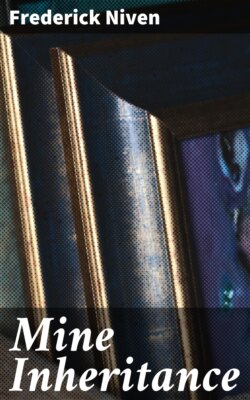Читать книгу Mine Inheritance - Frederick Niven - Страница 10
На сайте Литреса книга снята с продажи.
III
ОглавлениеTable of Contents
Head winds in the Atlantic, fog off Greenland and Labrador and in Hudson Strait, pan-ice joggling in the great inland sea of Hudson Bay, made ours the longest voyage in the knowledge of the ship-captains. It was in fact not only the longest passage but the latest arrival in the season so far known. Too late we reached York Factory to undertake the inland voyage that year by the linking waterways to Lake Winnipic and Red River. The journey would be slow because of all we had to take with us. Winter must not catch us on the way.
Not far from the Hudson’s Bay Company’s fort we built log houses for winter quarters (named Nelson Encampment, being by the side of Nelson River), and all the consolation that Captain Macdonell—Governor Macdonell—had for that irksome delay was that in the winter months, which were chiefly occupied in building boats in preparation for the spring and the thawing of the rivers, he had opportunity to know his men and to decide upon which to take on with him and which to discharge as proven unfit for his service.
It was with a sense of utter relief that on July 6th, sitting in one of the boats going up Hayes River, which thawed earlier than the Nelson by which we had encamped, we looked back and saw the metal roofs of York Factory, glinting in the sun above a cape and a fringe of trees, slowly eclipsed by that cape and forest tip. There were nineteen of us thus cheerfully continuing on our way. The Governor, after the testing of all through the winter by Hudson Bay, had selected twenty-two to go on with him, but three declined. They preferred to try to get work at York Factory or, if they failed to do that, to return home with those discharged, on the evidence they had given of the qualities during the past months, as not likely to make satisfactory helpers.
As far as the Hudson’s Bay Company’s post on Oxford Lake, Oxford House, we had the assistance of a few Company men who had come down thence to York Factory after the breaking of the ice. At Oxford House we found that there were bulls and cows owned by the Company, the lush grass of the lakeside their fodder, lush grass that turned into natural hay in the fall of the year. Unusual loads we took with us into the Indian Countries, such as hoes and harrows and the like; and some twelve-pounder guns we took also, these last carrying a hint that possibility of need, some day, to defend the Settlement from enemies had been considered. At Oxford House the Governor purchased a bull and a cow from the factor, our boats being large enough to transport them. The progress of our party, with much unwieldy cargo to transport over the portages or “carrying-places” where rapids had to be evaded, could be, you will realise, by no means as speedy as that of the famous Ermatinger’s Express that carried no such cargo, by no means as speedy as that of the celebrated swiftly-paddled canoe of the Hudson’s Bay Governor, Sir George Simpson, whom I was to meet many years later.
On the last day of August—the year was 1812—we drew in to the bosky bank of Red River, otherwise known as Summerberry River, a little way below where the tributary Assiniboine flows in from west.
